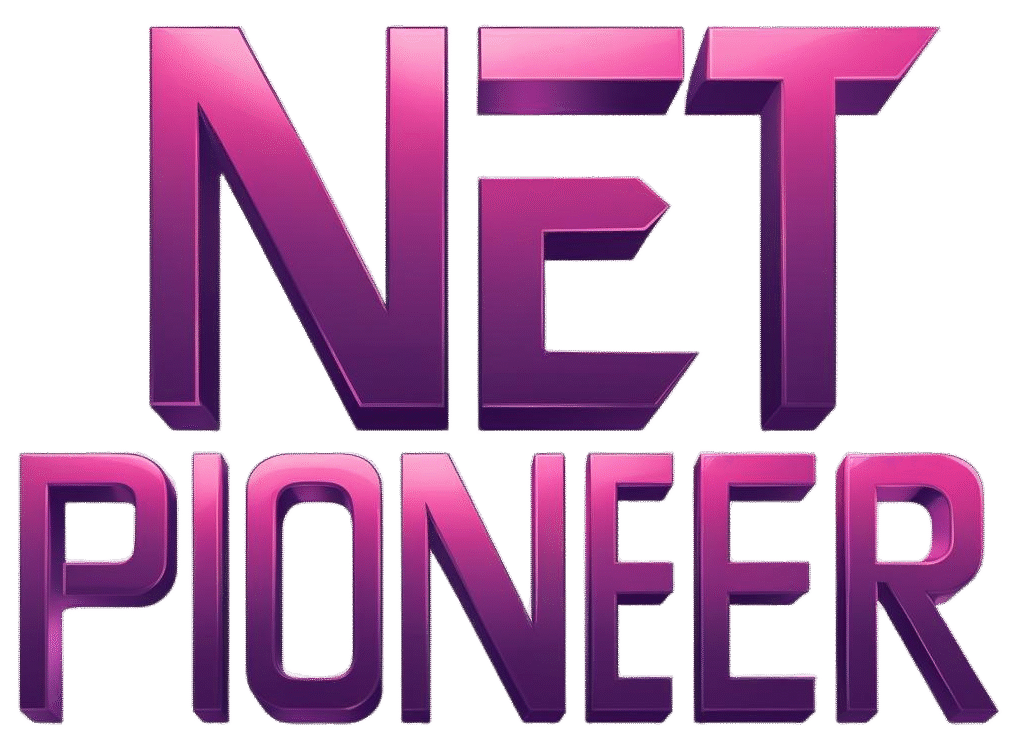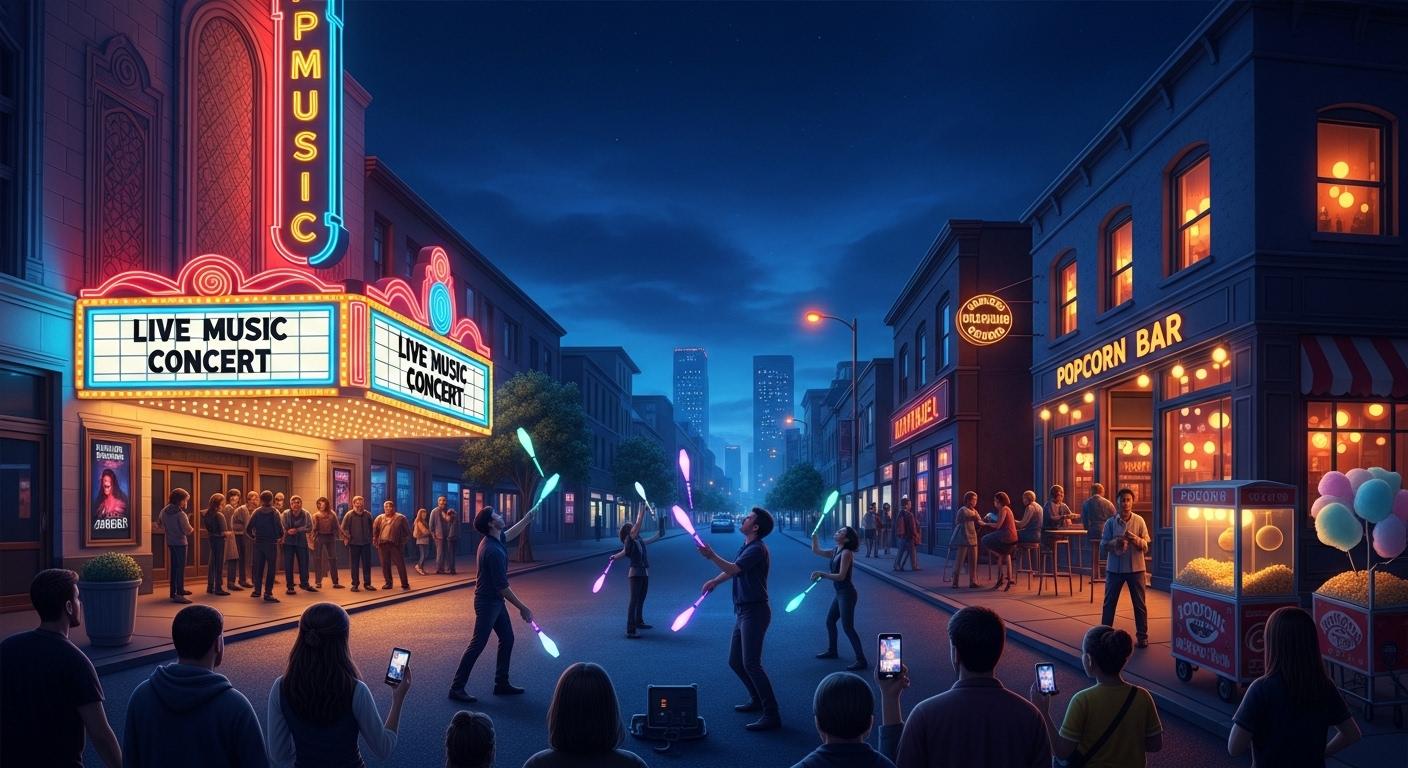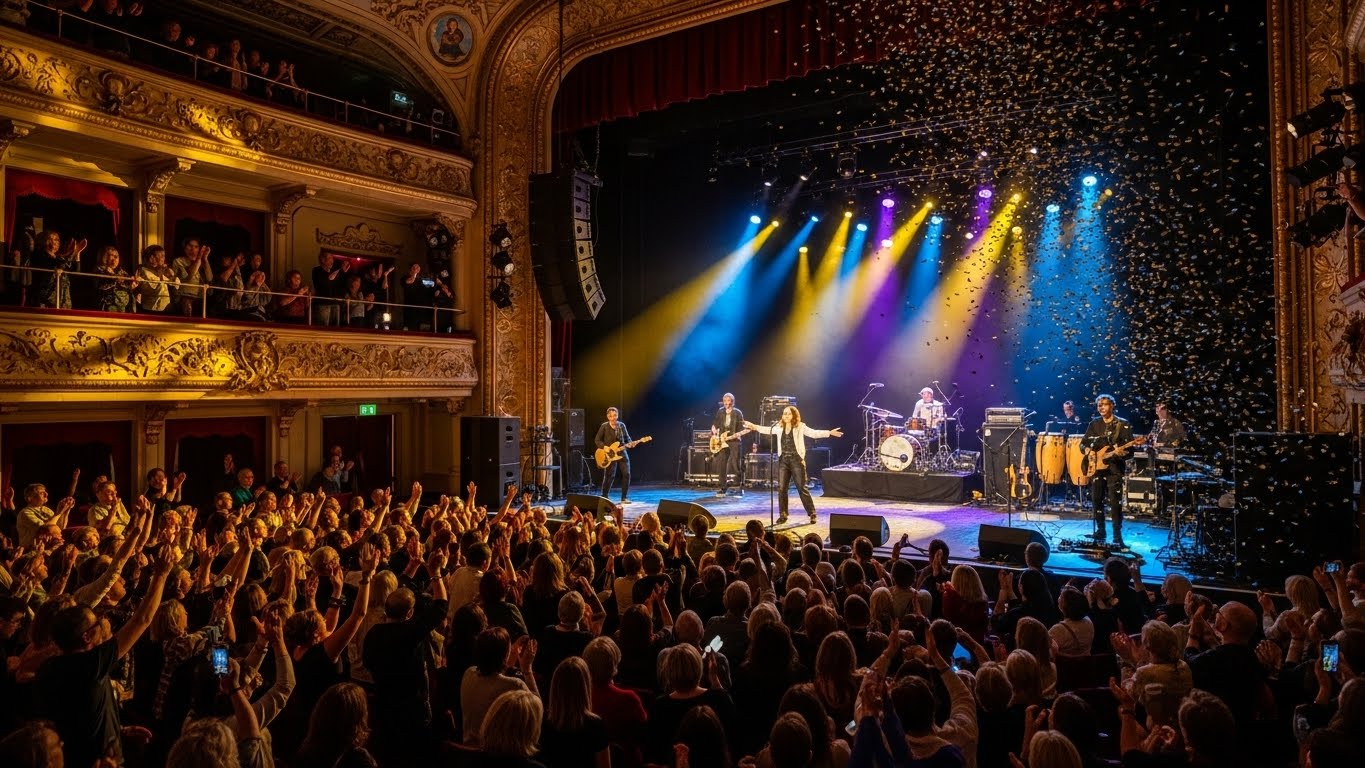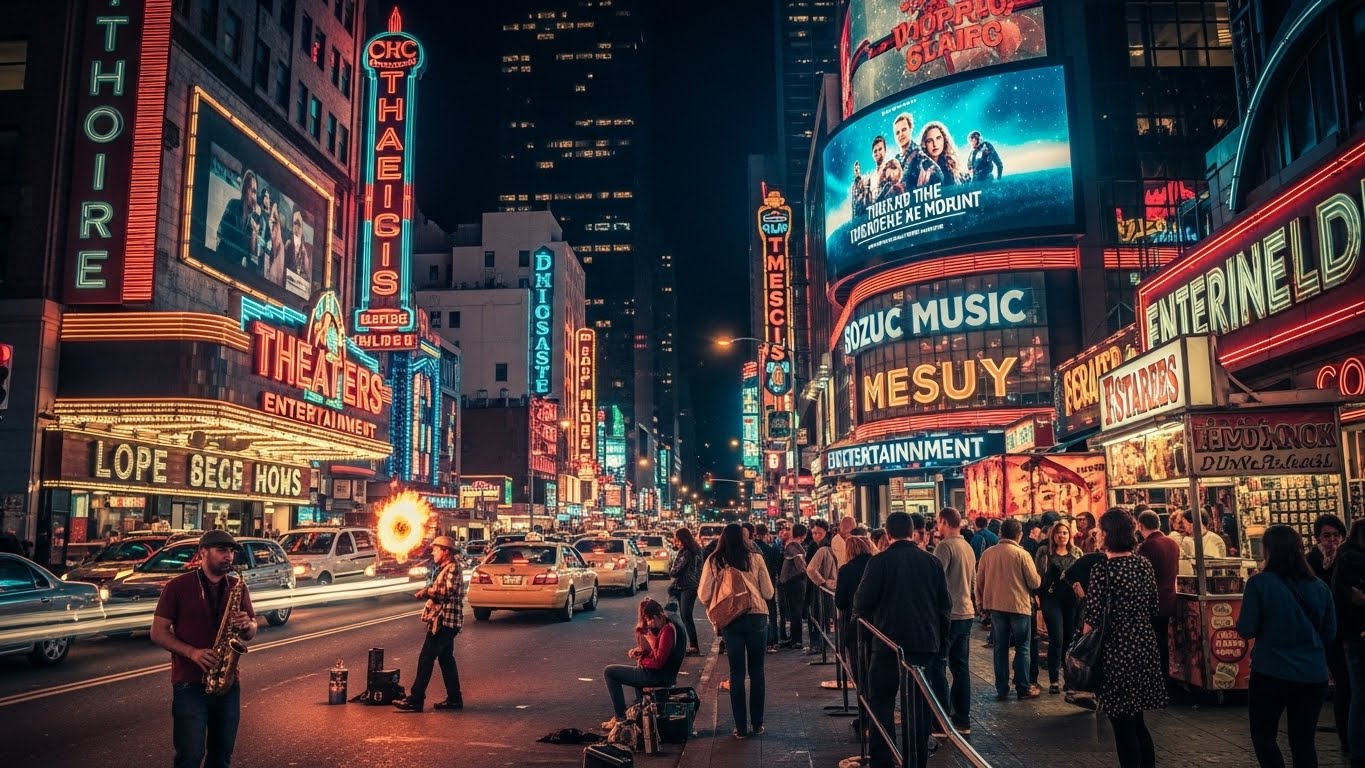In today’s fast-paced world, entertainment is more than just a way to unwind after a long day. It has become an essential part of our daily lives, shaping our moods, sparking creativity, and connecting us with people across the globe. The shift from traditional forms of entertainment to digital platforms has transformed how we experience stories, art, and leisure activities. But how did entertainment evolve into such an integral part of modern life, and what does the future hold for this dynamic industry?
The Rise of Digital Entertainment
Gone are the days when entertainment was confined to a TV screen or a movie theater. With the rise of digital platforms, entertainment has become more accessible, personalized, and interactive. Streaming services like Netflix, Spotify, and YouTube have revolutionized how we consume movies, music, and TV shows, offering instant access to an endless array of content, often tailored to our specific preferences.
Digital entertainment is no longer just a passive experience. Thanks to social media, platforms like Instagram, TikTok, and Twitter allow users to actively engage with content. People share their thoughts, reactions, and creative expressions in real time, making entertainment a more collaborative and interactive experience. The lines between creators and audiences have blurred, creating a new culture where anyone can become a content creator and build a following.
The Escape We All Need
At its core, entertainment has always provided an escape. Whether it’s a gripping novel, an exhilarating video game, or a heartwarming movie, entertainment offers a break from the stresses and demands of daily life. In a world filled with constant information and expectations, these moments of distraction are more important than ever.
Entertainment helps us explore different emotions, lives, and worlds. It allows us to connect with characters, understand diverse perspectives, and experience things we might not encounter in our daily routines. Through immersive experiences like video games or virtual reality, entertainment takes us to entirely new realms, providing an opportunity for adventure, creativity, and exploration.
Social Connectivity Through Entertainment
One of the most powerful aspects of modern entertainment is its ability to connect people. While the entertainment industry has long had a social component—think of sharing a movie night with friends or discussing the latest book club read—digital platforms have taken social connectivity to new heights.
With online gaming, social media, and live streaming, entertainment has become an avenue for social interaction that transcends geographical boundaries. People now share their entertainment experiences with others across the world in real-time, creating communities and building friendships based on mutual interests. For example, gaming platforms like Twitch and YouTube Gaming have transformed casual gaming into a social event, where gamers not only play but also share their experiences, thoughts, and reactions with a global audience.
This socialization aspect of entertainment has evolved into something bigger than just sharing moments; it’s about creating bonds and building shared cultural experiences. Fandoms around TV shows, movies, and video games bring people together to discuss plot twists, fan theories, and upcoming releases, helping individuals find common ground even in the vast, digital world.
Entertainment as a Creative Outlet
In the digital age, entertainment is not just something we consume—it’s something we create. The rise of platforms like YouTube, TikTok, and Instagram has allowed individuals to express themselves in creative ways that weren’t possible in the past. Whether it’s making short films, sharing art, or writing blogs, these platforms empower people to create and share their work with a global audience.
Furthermore, entertainment in the digital space has led to the birth of new genres and formats. Who could have predicted that a short, looping video would become a form of expression in itself, like the TikTok dance craze? Or that fan-made content like memes or fan fiction would become an essential part of popular culture? These digital spaces have democratized creativity, allowing more voices and stories to be heard, creating a more diverse and inclusive entertainment landscape.
The Impact of Streaming and On-Demand Entertainment
Streaming services have completely reshaped the entertainment industry. The shift from traditional cable TV to on-demand content has given viewers more control over what, when, and how they watch. No longer do we have to wait for a weekly show to air or fit our schedules around movie theater times. Now, we can binge-watch entire seasons of our favorite series or discover new content without ever leaving our couch.
This shift has also changed the business side of entertainment. Traditional broadcasting and cable networks now have to compete with streaming giants like Netflix, Hulu, and Amazon Prime, forcing them to adapt or risk becoming obsolete. As a result, we’ve seen a surge in high-quality content, with streaming platforms producing original shows and movies that rival, or even exceed, traditional Hollywood productions.
The convenience and flexibility of streaming have made it possible to curate our own personal entertainment libraries, accessible from multiple devices. Whether it’s watching a movie on a smart TV, listening to a podcast on the go, or watching a live stream from a mobile device, entertainment is no longer tied to a specific location or time.
The Future of Entertainment: Virtual Reality and Beyond
As technology continues to evolve, so too will the landscape of entertainment. One of the most exciting developments is the potential of virtual reality (VR) and augmented reality (AR). These technologies promise to transform the way we interact with entertainment, offering experiences that are not only immersive but interactive.
Imagine stepping into a virtual concert where you’re part of the audience, or navigating a digital world in a video game that reacts to your every movement. VR and AR open up new possibilities for storytelling and creativity, enabling us to live out experiences in ways that were previously unimaginable. For example, virtual reality gaming already allows players to become fully immersed in their games, interacting with characters and environments in ways traditional gaming never could.
Additionally, advancements in AI (artificial intelligence) may lead to even more personalized entertainment experiences. Content could be dynamically tailored to our mood, preferences, or even the time of day, ensuring that what we watch, listen to, or play feels uniquely suited to us.
Conclusion
Entertainment has come a long way from the days of radio shows and silent films. Today, it’s an integral part of our daily lives, offering more ways to connect, express, and escape than ever before. With digital platforms, on-demand content, and new technological innovations like VR and AI, the future of entertainment holds endless possibilities. As we continue to embrace these advancements, one thing is clear: entertainment will remain a central part of what makes life enjoyable, exciting, and full of wonder.
This blog post explores the evolution and future of entertainment in the digital age, highlighting the role of streaming services, social connectivity, and emerging technologies like virtual reality. It emphasizes how entertainment has transformed from a passive activity into a dynamic, interactive experience that shapes our lives and cultures.



